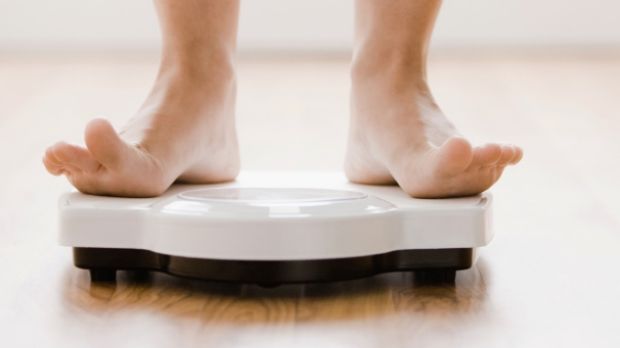
To weigh, or not to weigh? Photo: Getty Images
Is it smart to weigh yourself regularly in the interests of weight management – or is it the sort of behaviour that can help stoke an eating disorder?
There’s no straightforward answer to this which could explain why attitudes towards regular weigh-ins have swung backwards and forwards over the years. Rewind to the late 90s and the general advice was to toss the bathroom scales – partly because of concerns that fretting over the numbers on the scales could contribute to eating disorders but also because waist measurement was seen as a better guide to weight lost or gained. After all, if you lose fat but gain muscle as a result of more exercise the scales may register no weight loss and possibly some weight gain – although you will look leaner.
But concerns about growing obesity have given the scales a new respectability with a number of studies now suggesting that regular weighing is useful for promoting weight loss and preventing weight gain.
This doesn’t convince Dr Rachel Gold, a psychologist with the Eating Disorders Foundation of Victoria (www.eatingdisorders.org.au). She’d prefer an emphasis on changing behaviour rather than changing the numbers on the scales – and that goes for anyone who’s trying to reach a healthy weight, regardless of whether they have an eating disorder or not.
“Zeroing in on the numbers takes the focus away from other more important issues like ‘Am I moving enough and enjoying it, am I eating for health and for pleasure or how is my mood?’ These are all things that can affect a person’s overall health,” she says.
For people at risk of an eating disorder, or who already have one, weighing oneself too frequently can fall into the category of problematic body checking, according to Gold.
“For some people self-worth is often based on things like how much they weigh and how they look in the mirror. Weighing can reinforce the idea of using these kinds of checks to gauge self worth and can perpetuate the eating disorder,” says Gold. “Some people can become very reactive to small changes on the scales and this can trigger eating disorder symptoms.”
For anyone with disordered eating, staying away from the scales is good advice, agrees Caitlin Reid, a Sydney-based accredited practising dietitian and accredited exercise physiologist – but for others trying to manage their weight, the scales can help prevent kilo creep, the slow, small gains in weight that, over time, can become a significant problem.
“They can be a good tool to help people understand that they need to be more careful about what they eat and drink at the weekend, for example. People often lose weight during the week but then have big weekends where they eat and drink more and this can turn into a small weight gain of a kilo or two which shows up on Monday morning when they jump on the scales. I find that regular weight checks can help keep them focused on maintaining their weight,” says Reid, who writes at Health and the City (healthandthecity.com.au).
“Because we gain weight very gradually people are often unaware that it’s happening but using the scales to monitor weight once a week can help prevent incremental weight gain.”
Still, scales aren’t the only way to keep tabs on your weight – trying on the same pair of jeans once a week to check how they fit is more reliable than using the scales, says Reid.
It’s also important to remember that weight can fluctuate for reasons other than losing or gaining fat or muscle, she adds. Fluid losses that occur when you exercise in the heat can show up as less weight on the scales, while premenstrual fluid retention can add an extra kilo or two, especially in women with a high salt intake.
“But if you have any dramatic gain or loss of weight in a short time, then always check with your doctor,” she stresses.
If you or someone you care about needs help with an eating disorder, call the Eating Disorders Helpline on 1300 550 236.
